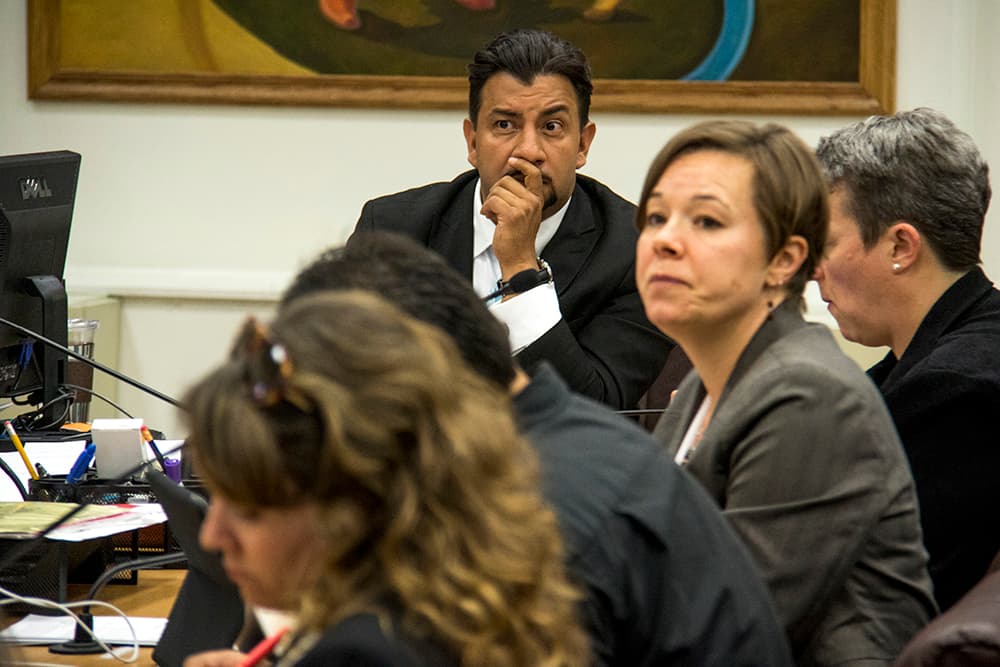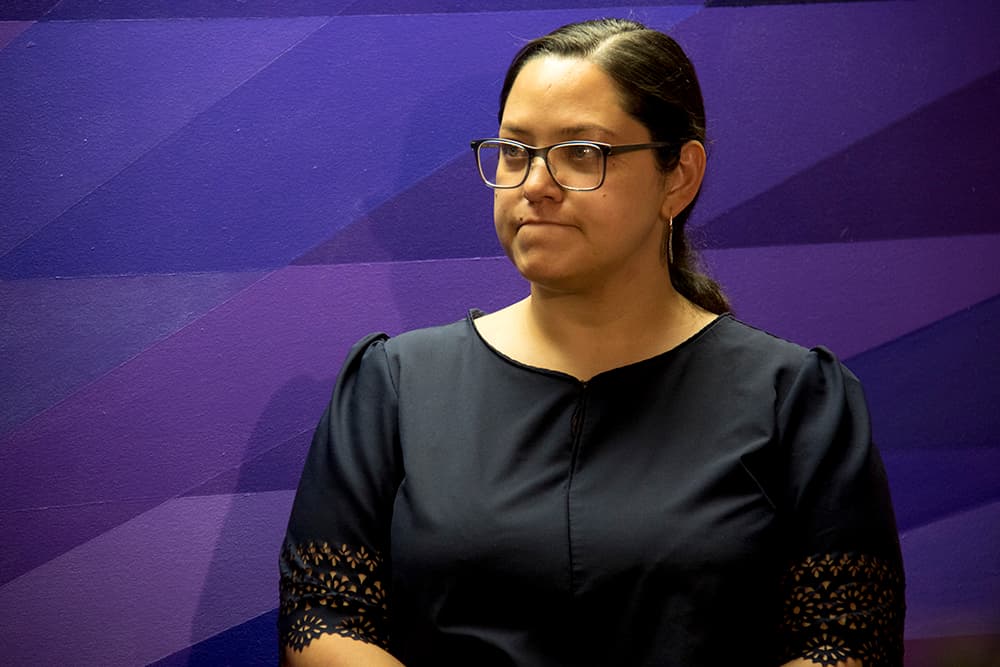
Update: The Denver City Council holds a one-hour public hearing on this proposal on May 22.
This Monday, the Denver City Council will consider significantly reducing the maximum punishment for some crimes. The proposal would help non-citizens, such as students and green-card holders, avoid deportation when they are convicted of theft and other lower-level crimes.
The proposed change does not give the same new protection to people convicted of more serious crimes, including domestic violence. That exception has divided supporters of the bill.
The issue:
This is not about unauthorized immigrants, for the most part. It's about legal immigrants, visa-holders and permanent residents, who can still lose their legal status and face deportation.
These people might include, for example, someone who married a service member and got a green card or a student studying here on a visa. If that person is convicted of a crime within five to seven years of arrival in the United States, they will face the threat of deportation.
Often, the big question in these cases is whether the crime involved "moral turpitude," which refers to conduct that is "inherently base, vile or depraved," according to the federal government.
In practice, that means that you can lose your legal status over crimes ranging from shoplifting to forgery to murder. Conviction on those crimes doesn't guarantee deportation, but it creates a serious threat for the immigrant.
However, there is one surefire defense: Legal immigrants can escape deportation if the maximum sentence of their crime is less than a year.

The proposal:
So, the Denver City Council has some control over how often people in Denver end up falling into that "maybe deportation" category of criminal charges. That's because the city's laws and its Denver County Court determine the punishments for a slice of the stuff that can get you arrested.
For example, petty theft will land you in Denver's court. And, like most of Denver's many offenses, it's punishable by up to 365 days in jail.
Now, many of the crimes in Denver's code wouldn't qualify as "moral turpitude" -- but theft would. So, while you might only get, say, a few weeks in jail, the conviction puts you at risk of deportation.
Hoping to blunt the threat, city leaders are considering a seemingly small legal change with major implications. Mayor Michael Hancock's administration has proposed to reduce the maximum sentences for many of these charges from 365 days to 364 days or less.
The maximum sentence is rarely imposed, and getting rid of it would give immigrants a hugely important new defense: If it's the first time they've been convicted of a "moral turpitude" crime, they can claim it's a petty offense (because it's less than 365 days of maximum punishment) and ICE potentially lets them off the hook.
It's very hard to say just how many people this change would affect -- but, it would be another layer of protection for immigrants who have committed certain crimes.
"A change to 364 says that we, as a city, believe these crimes are so minor that there should be no collateral immigration consequences for these convicted offenders," a city presentation states.
The idea seemed to carry early support and little opposition in a committee meeting on Thursday, though council members had lots and lots of questions.
California, Washington, Nevada and New York all have taken on similar reforms.
Does it help undocumented immigrants?
Not particularly, according to city attorney Kristin Bronson. A "moral turpitude" conviction can hurt an undocumented immigrant seeking to delay deportation, but there are a lot of other factors at play there, too.
What are the new sentences?
This proposal actually splits municipal offenses into three categories.

The highest category of offense, extraordinary risk offenses, would remain unchanged with a maximum 365-day sentence, that could carry immigration consequences, and up to a $999 fine. That includes hate crimes, sex offenses, crimes that pray on "at-risk residents," assaults on law enforcement, crimes inflicting serious bodily harm, crimes involving strangulation and "habitual" acts of domestic violence.
The lowest category of offense would max out at 60 days in jail. It includes many "quality of life" charges that often are brought against homeless people, from unauthorized camping to panhandling and public urination.
The rest of the municipal offenses would carry a maximum of 300 days in jail and $999 fine.
What they're saying:
Denver has received largely positive responses, at least in terms of those who have written letters to the city about it.
However, the fact that those higher-level crimes are excluded from the change concerns some immigrant advocates. A representative of the Colorado Immigrant Rights Coalition called on the city to cap the punishment for all municipal violations at 364 days or less. Having any offenses with 365-day sentences means that Denver is still targeting some residents for deportation, they argue.
"By placing the maximum sentence at 364 days, we take that choice away from local officials and are making sure it is ICE who decides who they consider a priority," he wrote, pointing out that ICE can make its own priorities whether or not the 364-day rule is in effect.
The Meyer Law Office argued that shortening sentences would make the courts more efficient. If people don't have to worry about deportation, they have less incentive to extend their fights.
Domestic violence in particular is a fraught question in this debate. Julie Gonzales, policy director for Meyer, argued that immigration concerns don't help domestic violence cases.
"Automatic deportation of the abuser, or even the potential for deportation, is not always the desired outcome for immigrant victims, particularly in first-time and low-level domestic violence incidents," wrote policy director Julie Gonzales.

But the director of the Rose Andom Center, which serves domestic violence survivors, argued there should be a distinction between that crime and offenses like petty theft. "Crimes of domestic violence charged at the municipal (vs. misdemeanor or felony) level are not 'low-risk,' Margaret Abrams wrote in a letter to the city.
In contrast, Christopher Lasch, an associate professor at the University of Denver's law school, argued that "there is no meaningful difference between a 364-day and a 365-day sentence," except for the immigration thing. No one's getting off easy here, that is.
The "suggestion that retaining the possibility of a one-year sentence is necessary to 'protect the community from violent offenders' undercuts the claim that the City is disentangling itself from immigration enforcement," he wrote to the city. The American Civil Liberties Union mirrored that argument.
Lasch also called on the city to do more, such as creating more ways to clear warrants and resolve violations without being arrested or appearing in court, while the ACLU urged the city to collect more data and consider shortening sentences even beyond this proposal.
What's next:
It goes for a first reading this Monday, May 15, before Denver City Council, followed by a vote on May 22. It would go into effect June 1.












